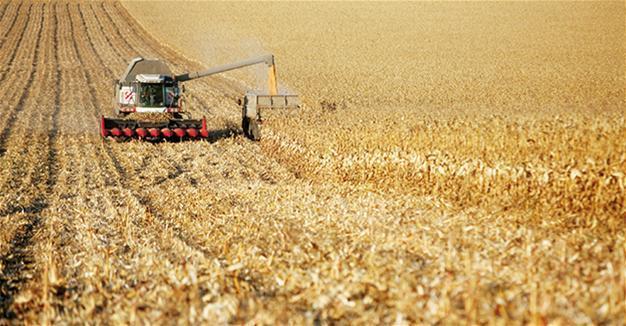Turkey, Russia to discuss trade on agricultural products in Sochi
Serkan Demirtaş - ANKARA

REUTERS photo
Turkey and Russia will discuss ways to enhance trade on agricultural products as the former expects the lifting of all sanctions imposed on Turkish food supplies amid an acceleration in the normalization of bilateral ties between the two countries.Turkish Agriculture Minister Faruk Çelik will meet Russian counterpart Alexandr Tkachyov on Nov. 18 in Sochi on the sidelines of an international agriculture fair with the participation of a large delegation from both sides.
Russia has lifted some of the trade sanctions it imposed on Turkish products after Ankara expressed its regret for the downing of a Russian warplane on Nov. 24, 2015.
The Turkish and Russian presidents, Recep Tayyip Erdoğan and Vladimir Putin, have held three separate meetings since July and signed the Turkish Stream natural gas pipeline as well as agreed to further develop ties in the field of economy, trade, transportation and tourism. However, there are still some restrictions imposed on the Turkish export of agricultural products to Russia.
“In our meeting in Sochi, we’ll discuss all these issues,” Çelik told the Hürriyet Daily News on Nov. 17 in an interview. “Sanctions will be lifted but it will take some time. Our geography and our agricultural products are indispensable for Russia. They have to import our tomatoes and citrus products.”
Russia imported some of its needs from other countries while it imposed sanctions on Turkey but talks to be held between the two countries would open the doors of the Russian market to Turkish products, the minister said.
However, the agenda of the two ministers will not be limited to the lifting of sanctions. Russia recently proposed exporting red meat to Turkey in order to supply the needs of the Turkish market. “It’s no secret that we have a deficiency in red meat, and we need to import it. Our need is around 150,000 and 200,000 tons. And they are proposing to supply a part of it,” Çelik said.
“We could import around 50,000 tons of red meat from Russia,” said the minister, adding that Turkey was currently importing red meat from Brazil and Bosnia and Herzegovina.
Another item in the ministers’ agenda will likely be Turkey’s demand to sell poultry to the Russian market. Russia imposes heavy custom tariffs on Turkish poultry products that make exports nearly impossible. Çelik will likely raise this issue to his Russian counterpart in his meeting in Sochi on Nov. 18.
“We have well-integrated poultry industries. We are telling them to buy their needs from Turkey. We’ll ask them to lift the blockage on poultry,” he said, recalling the Russian market had a deficiency of around 150,000 tons of poultry annually.
Organic agriculture to be boosted
Informing about the recently announced National Agriculture Program, Çelik stressed that they would focus on boosting the livestock industry so that Turkey will no longer import red meat. “We have selected 29 provinces where we will subsidize the livestock industry,” he said.
Another important project is to promote organic agriculture, the minister stated, underlining that they had designated four provinces for completely organic agriculture. “We recently had a meeting and we will declare Gümüşhane, Bayburt, Rize and Artvin as towns where only organic agriculture will be conducted. That’s what we are planning for tea production. There will be no use of any chemical fertilizers,” he said.
















